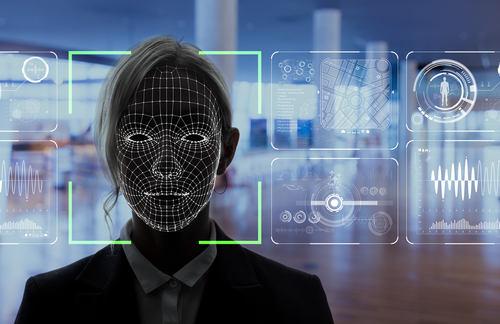
A group of Democratic representatives recently introduced the Facial Recognition Act of 2022 to enforce limitations and increase transparency in law enforcement’s use of facial recognition technology.
The lawmakers argued that a lack of transparency or reasonable limits can make such technologies invasive and threaten Americans’ civil liberties. They noted that law enforcement has already utilized the technology to punish peaceful protestors, investigate minor offenses and arrest people on a single match from the technology, with no further proof. The algorithms involved in such technology have also had their flaws pointed out by numerous investigations, revealing discriminatory biases, particularly against people of color.
“Protecting the privacy of Americans – especially against a flawed, unregulated, and at times discriminatory technology – is my chief goal with this legislation,” U.S. Rep. Ted Lieu (D-CA), one of the bill’s authors, said. “I’m pleased to work with Representatives Jackson Lee, Clarke, and Gomez to introduce this bill to rein in law enforcement’s use of facial recognition technology. Our bill is a workable solution that limits law enforcement use of FRT to situations where a warrant is obtained showing probable cause that an individual committed a serious violent felony. It also prohibits law enforcement from using FRT at protests, to track individuals with real-time face surveillance, in conjunction with body cameras, and in other problematic scenarios. This approach has received broad support including from civil liberties groups and former law enforcement officers alike.”
The bill approaches the issue from multiple angles. First, it would limit use to when a warrant with probable cause was obtained to pursue individuals for a serious violent felony. Law enforcement would not be able to use facial recognition technology to record how individuals express Constitutionally guaranteed rights, enforce immigration laws, track individuals with live or stored video footage, and more.
For transparency purposes, it would create a private right of action for those harmed by the use of facial recognition technology and require law enforcement to provide notice to those subject to an affiliated search. Further, law enforcement would have to purge photos of individuals younger than 18, who were ultimately released without charge, had charges dismissed, or were acquitted from cases using facial recognition technology arrest photo databases every six months.
Each of these would be backed up by annual assessments and reports. Facial recognition technology systems would have to be regularly audited, and agencies suspended for failing audits. Independent testing would be a must, and judicial and prosecutorial reporting would have to be detailed, along with any data collection involved.
“Facial recognition technology must not be used as an invasive, intrusive surveillance tool because, if unrestrained, this powerful technology can be misused for racial profiling, infringing on personal privacy, and vilifying people who exercise their Constitutionally protected rights, such as the right to participate in peaceful protests,” U.S. Rep. Jackson Lee (D-TX) said. “Our legislation establishes appropriate guardrails against surveilling people and misusing their personal characteristics – including one’s face, head, hair, and body – to identify people who should not be subjected to such targeting and intrusive actions.”
The bill is supported by the Center for Democracy & Technology, Constitution Project at the Project on Government Oversight, Center on Privacy & Technology at Georgetown Law, Law Enforcement Action Partnership, Coalition for Humane Immigrant Rights, and more, including retired law enforcement officials and nonprofit agencies.




